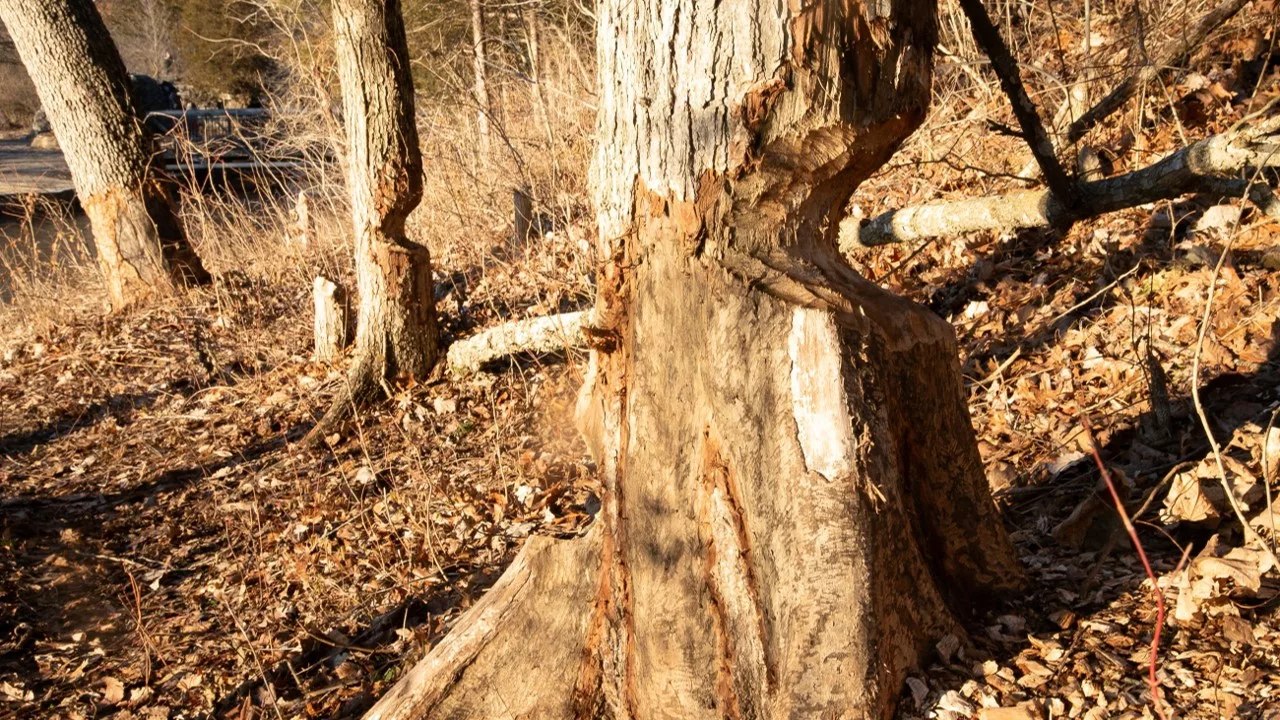(KTTS News) — Some areas in Springfield’s Sequiota Park are closed because of damage caused by beavers.
Park officials say the beavers have damaged or killed 30 to 40 trees, chewing them down so far that only stumps are left behind.
The beavers also ate the bark off of several other trees.
Bark doesn’t grow back, so those trees will likely die, too.
Beavers eat bark, bushes, and woody vines in the winter time.
The Springfield-Greene County Park Board has temporarily closed the trails and wooded area east of the lake and stream at Sequiota Park.
The closure is expected to last for two weeks.
The rest of the park remains open, including all paved trails, the Galloway Creek Greenway, and soft-surface trails upstream near the cave, and downstream from the southern bridge.
In the meantime, staff members are working to trap and remove beavers from the area.
Press Release
The Springfield-Greene County Park Board has temporarily closed the trails and wooded area east of the lake and stream at Sequiota Park, due to extensive damage caused by beavers.
The public is asked to stay out of this area due to hazardous conditions.
Trails are marked closed in the wooded area between two bridges, on the north and south sides of the lake.
The closure is planned for approximately two weeks, as parks staff members take down heavily damaged trees, level sharp pointed stumps, fill large holes in the trail, and remove debris, including logs accumulating beneath the bridge.
The rest of the park remains open, including all paved trails, the Galloway Creek Greenway, and soft-surface trails upstream near the cave, and downstream from the southern bridge.
Parks staff is also coordinating with the Missouri Department of Conservation for permits to trap and remove beavers from the park.
Miles Park, Assistant Director of Parks – Operations, said beavers have caused a significant amount of damage in a short amount of time, with an estimated 30-40 trees damaged or killed.
Several damaged trees are still standing, with bark and chunks of the trunks missing.
Dozens have already fallen, leaving sharp knee-high stumps along the trail.
“Beavers have caused significant damage to the tree canopy on the east side of the lake — including right on the trail,” said Park. “We’re temporarily closing this area to keep people away from a potentially hazardous situation, and to allow our staff to repair the trail and safely take down the trees with the worst damage.”
According to the Missouri Department of Conservation, in the winter, beavers eat mostly tree bark, bushes and woody vines.
Several trees at Sequiota have been stripped of bark around the base of the trunk.
Bark does not grow back, and these trees, although still standing, will likely die.
Beavers are known for building wooden dams, although in Missouri, they often dig underground dens on the stream bank, explaining the holes in the trail.
“They’ve caused a lot of damage in a very popular and heavily-used city park,” Park said “If left unchecked, these animals will continue to destroy our trees and negatively impact the park’s environment.”
For information on beavers, visit the Missouri Department of Conservation’s website.
To see photos of the damage, visit the Sequiota Park Facebook page.







